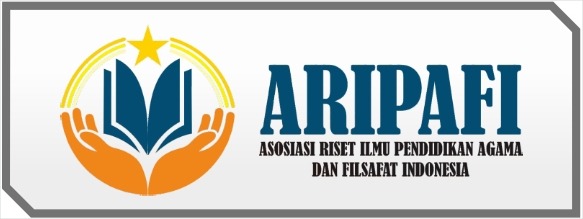Islamic Banking and Economic Development: Insights from Southeast Asia and the Middle East
DOI:
https://doi.org/10.61194/ijis.v2i3.607Keywords:
Islamic Finance, Shariah Governance, Financial Literacy, Green Sukuk, Islamic Banking, Sustainable Development, Policy ReformAbstract
This study presents a comprehensive narrative review of contemporary developments, challenges, and prospects in Islamic finance and banking, particularly within developing economies. The research aims to evaluate the sector's effectiveness in promoting financial inclusion, ethical investment, and sustainable development. Using a structured search methodology across Scopus, Google Scholar, and DOAJ, relevant literature was selected based on thematic keywords and inclusion criteria focusing on empirical studies and policy-oriented analysis. Key findings indicate that Islamic financial literacy strongly influences investment behavior among Muslim investors by reducing perceived risk and aligning investment choices with ethical values. Shariah governance, particularly the role of Supervisory Boards, is pivotal but faces implementation disparities across countries. Product innovation in markets like Malaysia and Indonesia exemplifies the sector's responsiveness to financial modernization while adhering to Shariah principles. Moreover, Islamic finance aligns with sustainable development goals through instruments such as green sukuk and zakat, offering ethical alternatives for environmental and social financing. Systemic challenges persist, including inconsistent regulatory environments, limited public understanding, and fragmented interpretations of Shariah law. To address these, the study recommends enhancing regulatory alignment, promoting public education, and strengthening institutional collaboration. These findings underscore the transformative potential of Islamic finance in achieving inclusive and sustainable economic outcomes.
References
Ahmad, R., & Zabri, S. M. (2023). Influence of Islamic financial literacy on consumer preference in Islamic banking. Journal of Islamic Financial Studies, 12(1), 54–69.
Al-Amaren, E., & Al-Husban, A. (2024). Musyarakah mutanaqisah as an alternative home financing model: Malaysian case review. Journal of Islamic Banking and Economics, 16(2), 112–129.
Alhammadi, A. (2022). Shariah-compliant product development in emerging markets: A regulatory perspective. International Journal of Islamic Finance and Business, 10(1), 66–80.
Alhammadi, A., Salleh, M., & Ahmad, N. (2018). Fintech and Shariah governance in Islamic banking: A conceptual analysis. Journal of Digital Islamic Economy, 6(2), 81–97.
Asni, F. (2020). The implementation of Shariah-compliant fintech in Islamic finance institutions: Opportunities and barriers. Journal of Islamic Economics and Halal Industry, 1(2), 55–66.
Asyiqin, S., & Alfurqon, H. (2024). Shariah board interpretation disparity in Southeast Asia: Case of Malaysia and Indonesia. Islamic Financial Research Review, 15(1), 90–106.
Belal, A. R., Dutta, S., & Islam, M. A. (2014). Corporate social responsibility in Islamic financial institutions: The case of Bangladesh. Journal of Business Ethics, 123(4), 605–619.
Dharma, D., Rahim, N., & Akbar, M. (2024). Islamic financial literacy and investor behavior: A Southeast Asian perspective. Southeast Asian Journal of Islamic Finance, 9(1), 35–50.
Faizi, W., Nisa, S., & Hilal, M. (2024). Green sukuk as a financing tool for environmental infrastructure: A Malaysian case study. Journal of Sustainable Islamic Finance, 8(2), 101–118.
Hanif, M., Farooqi, M. R., & Zubair, A. (2024). Islamic banking and sustainable development: A review of ESG integration in Shariah-based institutions. Journal of Islamic Social Finance, 11(1), 88–105.
Jarbou, A., Hamed, L., & Zahid, M. (2024). Fintech and Islamic banking integration: Opportunities and compliance challenges. International Journal of Islamic Digital Finance, 6(1), 65–80.
Karim, H., Sulaiman, M., & Jalil, F. (2022). Public communication and Shariah compliance transparency in Islamic banking. Journal of Islamic Marketing Communication, 13(2), 45–59.
Khaleel, F., Yusoff, W. S., & Nawi, N. (2021). Financial literacy, ethical behavior, and risk-taking in Islamic finance. Journal of Islamic Business Ethics, 9(1), 25–39.
KISACIK, B. (2021). The dual competence challenge: Shariah and finance in Islamic banking HR. Journal of Islamic Human Capital Development, 4(2), 44–58.
Maali, B., & Atmeh, M. (2015). The role of Islamic fintech in improving access to finance: Insights from Jordan and UAE. Islamic Economic Review, 7(1), 61–75.
Majeed, M. T., & Zainab, F. (2018). Sustainable development and Islamic finance: A roadmap for future research. Islamic Development Policy Journal, 5(1), 1–14.
Modan, N., & Hassan, R. (2018). Regulatory divergence in Islamic finance: Implications for cross-border operations. International Journal of Islamic Banking Regulation, 4(3), 78–92.
Rahman, A., & Chowdhury, A. (2023). Operationalizing maqashid al-shariah in Islamic financial planning: Lessons from Malaysia and Indonesia. Journal of Maqashid and Islamic Development, 6(1), 42–59.
Riaz, M., Khalid, A., & Malik, H. (2017). The role of zakat in sustainable poverty alleviation in South Asia. Journal of Islamic Economic Development, 3(2), 75–92.
Shamsudheen, M., & Rosly, S. A. (2020). Shariah governance and investor confidence: Evidence from Southeast Asia. Journal of Islamic Finance Practice, 10(2), 101–117.
Shamsudheen, M., Asni, F., & Rosly, S. A. (2021). Maqashid-al-shariah and ethical compliance in Islamic finance: A systematic literature review. Journal of Ethics in Islamic Finance, 12(1), 33–51.
Shaukat, S., & Naveed, K. (2020). Islamic banking and public perception in Pakistan: The role of awareness. Journal of Islamic Consumer Studies, 7(1), 60–74.
Tlemsani, I., Al-Momani, H., & Kassem, R. (2020). Risk aversion and Islamic financial knowledge among GCC investors. Journal of Islamic Economics and Business Research, 15(3), 223–239.
Turki, A., Alqaralleh, B., & Faheem, M. (2020). RegTech applications in Islamic finance: Enhancing compliance in the fintech era. International Journal of Islamic Fintech, 2(2), 33–48.
Uddin, S., Khan, M., & Mulyadi, A. (2023). Financial inclusion through Islamic finance: Comparative case studies from Indonesia and Pakistan. Journal of Islamic Economic Development, 8(1), 1–20.
Yusuf, M., Rahmat, M., & Hakim, R. (2024). Institutional challenges in Islamic banking in the Middle East: A legal and policy review. Middle East Islamic Banking Journal, 11(1), 93–110.






